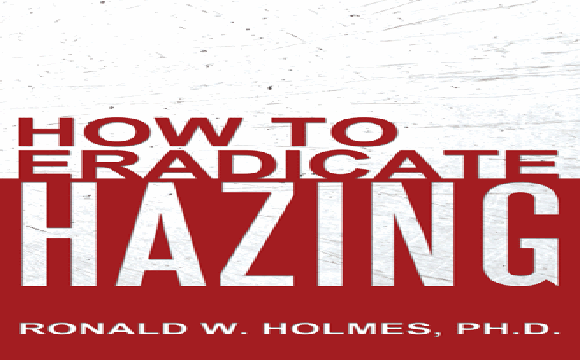What can educational institutions do during National Hazing Prevention Week?

Hazing is an epidemic in our American culture. It crosses racial, ethnic, gender and class boundaries and occurs in every institution including schools, colleges, military, sports and the workplace. So the critical questions to be asked are: What can educational institutions do during the National Hazing Prevention Week? What misconceptions do students have about hazing? How can educational institutions address the eradication of hazing through a Nine-Step Plan?
HazingPrevention.Org instituted National Hazing Prevention Week on September 23 – 27 as an opportunity for educational institutions, organizations, communities and individuals to promote the prevention of hazing. HazingPreviontion.Org advocates strong educational commitment, diligent policy reinforcement and comprehensive and ongoing community efforts be established to prevent hazing in our country.
With hazing being accepted as a “rite of passage” into certain groups and organizations, many students do not understand the seriousness and dangers of hazing. CNN recently asked viewers to respond to the question, “Is any type of hazing acceptable?” As a myth or misconception, members of groups feel it is okay to haze other members because of tradition. However, we have to educate all groups, students and administrators that it is never appropriate to haze in any way, shape or form. Hazing demonstrates a lack of compassion for others and themselves.
Similarly, a local radio station in Georgia asked its audience, “Does joining a group bring a person closer to its members?” Misinformed students believe hazing improves socialization in a group. However, we have to redirect all groups and students’ thinking that hazing promotes social oppression in groups by exerting power and control over those who are victimized or perceived as less powerful in the groups.
In support of National Hazing Prevention Week, The Holmes Education Post’s 2013 book on “How to Eradicate Hazing” discusses a Nine-Step Plan for addressing hazing throughout the year utilizing researched-based strategies. According to research, many educational institutions do not provide adequate training for constituents such as chapter advisors on anti-hazing prevention strategies. These institutions do not take strong disciplinary and corrective measures for known and suspected cases of hazing. They do not involve law enforcement in monitoring, investigating and prosecuting hazing incidents.
So, in this landmark book, students, teachers, parents, administrators and community officials will find the book helpful in understanding the meaning and dangers of hazing, as well as using it as a guide to enforce standards of behavior in all aspects of school programs. Other stakeholders such as school board members can find the book helpful in ensuring that policies are in place to prevent hazing incidents, as well as holding the institution’s leaders accountable for addressing incidents appropriately according to acceptable business practices.
While there are a plethora of events educational institutions can use to bring attention to the dangers of hazing during National Hazing Week, the following are some recommendations: (1) conduct anti-hazing rallies; (2) convene student organizations to talk about what hazing is, its impact on students, organizations, families, alternative initiation rites, etc.; (3) integrate discussion about hazing into the curriculum by having students write about the topic. The subject of hazing can easily be integrated in subjects such as English, History, Health, etc.; (4) invite keynote speakers to provide attention to this topic; (5) start a campus blog about hazing; (6) have student organizations review the institution policies with their membership and (7) develop a writing, rapping or debating contest where students deal with the topic of hazing.
National Hazing Prevention Week is a wonderful opportunity to spotlight this dangerous crime and involve students in debating and discussing how to eradicate hazing from our society. I encourage our educational institutions, students and administrators to join forces and learn more about hazing. For additional information on hazing prevention, the book, “How to Eradicate Hazing” is now available through Authorhouse.com, Amazon.com or Barnes and Noble or call AuthorHouse Book Order Hotline at 1-888-280-7715.
Dr. Ronald Holmes is the author of four books, “Education Questions to be Answered,” “Current Issues and Answers in Education,” “How to Eradicate Hazing and “Professional Career Paths.” He is publisher of “The Holmes Education Post,” an education focused Internet newspaper. Holmes is a former teacher, school administrator and district superintendent. He can be reached at [email protected].

